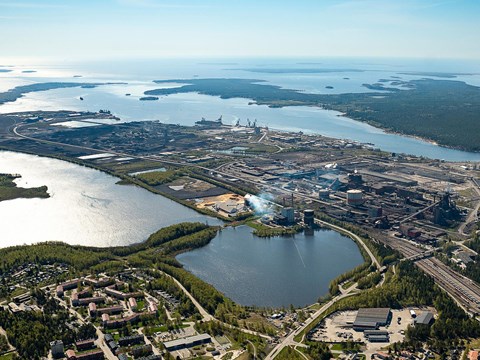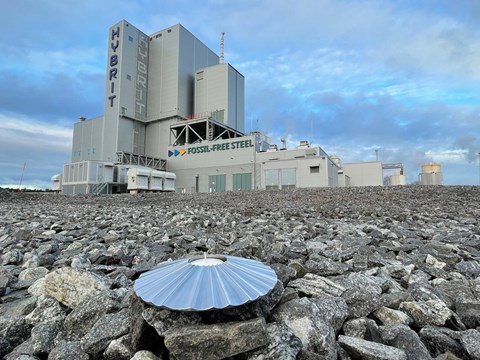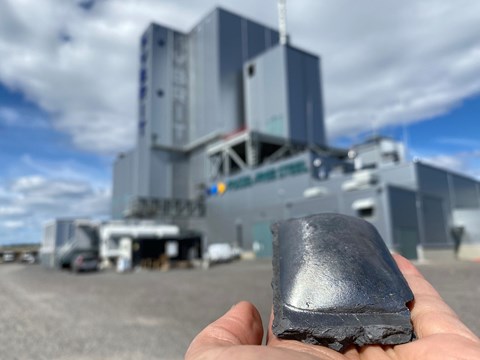No. 13 - Climate Action - the future of fossil-free steel

Climate Change - adaptations and measures
The climate goal supports global poverty reduction and sustainable development and can provide positive synergy effects and conditions for being able to meet several of the challenges the world is facing today such as food security, clean water, sustainable use of natural resources and ecosystems, human security, gender equality, health and economic growth. The need for adaptation to ongoing and future climate changes is great, especially for less developed countries and for the most vulnerable population groups. Measures are needed to reduce the risks and consequences of natural disasters.
Climate change is one of the biggest challenges of our time. A large percentage of the increased emissions of greenhouse gases into the atmosphere comes from the way we extract, convert and use fossil energy. Climate impact must be limited to create the conditions for poverty reduction and long-term sustainable development.
Recycling and circular economy
In Modul's quality and environmental system, we set ambitions and goals regarding the environment, quality and work environment. Among other things, we believe in recycling and circular economy as ways to combat climate change. We look at how we can influence our value chain's use of resources. It includes both our suppliers and our customers' willingness to reuse and recycle. Going forward, we will place greater demands on suppliers and find new solutions that can help our customers along the way.
Metal, especially steel, is the most recycled material in the world today. As a contract manufacturer of sheet metal products, we are resourceful of the metal material we use and go full-circle where leftover material is sent back for recycling to make new metal.
Modul views the green transition in society and the industry positively. To reduce the use of fossil fuel, increase the use of renewable energy with water, solar and wind power and increase electrification in society.


Hybrid - a fossil-free future
Modul is positive about being able to market and use fossil-free steel in the coming years. We look forward to the work being carried out at our existing major steel supplier SSAB to develop fossil-free steel. With the expectation that Modul via SSAB can offer fossil-free steel in a certain volume from 2026 onwards. In the green industrial transition, and to create an entire value chain for fossil-free steel, SSAB's collaboration with LKAB and Vattenfall in the joint company Hybrit is the first step towards fossil-free steel. With the HYBRIT-technology SSAB aims to replace the coking coal, which is traditionally needed for ore-based steel production, with fossil-free electricity and hydrogen.
It started with HYBRIT's pilot plant at SSAB's plant in Luleå. The plant was put into operation in 2020 and is the first of its kind, and here the process for reducing iron ore with fossil-free hydrogen gas was developed. Adjacent is an underground pilot plant for hydrogen storage that has been in operation since 2022. In addition to the development of the pilot plant, HYBRIT is preparing a demonstration plant at LKAB's iron ore mine in Gällivare. The plan is to complete the demonstration plant by 2025, at the same time as SSAB's blast furnace in Oxelösund is converted to an electric arc furnace. This means that SSAB will be able to produce ore-based fossil-free steel on a commercial scale by 2026.
Great demand for fossil-free steel
We at Modul are happy that our supplier SSAB wants to speed up the green transition. SSAB has made a strategic decision to fundamentally rebuild the Nordic sheet metal production system and accelerate their green transition. The background is the strongly growing demand for fossil-free steel. SSAB's plan is to replace the current system with so-called minimills, which provide a wider range of products and an improved cost position. The ambition is to largely remove carbon dioxide emissions in SSAB's own operations around 2030. For this to be possible, the necessary infrastructure must be in place in time, and access to fossil-free electricity will be especially important.
The strategic decision means that SSAB's facilities in Luleå and Brahestad are rebuilt into cost-effective minimills, with electric arc furnaces and rolling mills, and the facilities in Borlänge and Tavastehus are further developed for the new production processes. The transition at SSAB is to take place over the next ten years until approximately 2032. The investment amounts to the equivalent of SEK 45 billion.
With this, SSAB will have the world's first fossil-free steelmaking technology, practically without any carbon dioxide emissions. Their goal is to reduce Sweden's carbon dioxide emissions by 10 percent and Finland's by 7 percent.
